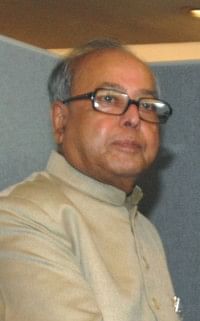Pranab Mukherjee's visit

Pranab Mukherjee Photo: wikimedia.com
NOT surprisingly, Indian political leaders were the first in the world to welcome Sheikh Hasina's spectacular victory in the 2008 parliamentary elections. Congratulating Hasina, Prime Minister Manmohan Singh assured India's commitment to further strengthening bilateral relations.
Indian External Affairs Minister Pranab Mukherjee also hoped that the Hasina government would sincerely address the problem of terrorism. While responding, Sheikh Hasina said: "Bangladeshi soil will never be used to carry out any terrorist act against our neighbours."
AL's election manifesto, "Charter for Change" referred to the party's commitment to friendly relations with "India, Nepal, Bhutan and Myanmar," as well as "regional and sub-regional cooperation." Remarkably, while India was pointed out by name, Pakistan was left out. This may be attributed to Hasina's gratefulness to India and her dislike of Pakistan, which was responsible for genocide in Bangladesh in 1971.
The BNP-led four party alliance governments had an anti-India stance mainly due to India's big brotherly attitude, and the dearth of reciprocity. Relations seemed to have improved to some extent during the two years of the caretaker government (2007-2008).
The government, with good connections with Indian political leadership, has again got an opportunity to put India-Bangladesh relations back on track. During Hasina's previous term as prime minister (1996-2001), Bangladesh and India concluded an important agreement on sharing of Ganges water. One more vital agreement on the Chittagong peace treaty was also signed with India. Nonetheless, Sheikh Hasina was cautious in her approach towards the transit issue because of strong resistance by the opposition political parties.
Bangladesh's contentious issues with India are: sharing of waters, demarcating of 6.5km borderland and maritime boundary dispute, tariff and non-tariff barriers and killing of Bangladeshi citizens by the Border Security Force of India. India did tell Bangladesh when it floated tenders for exploration of gas and oil in the territorial waters of Bangladesh in the Bay of Bengal.
India wants to have transit facility across Bangladesh from east to west, and also needs to use Chittagong port. India alleges that Bangladesh gives sanctuary to Indian separatists.
Against the above backdrop, the Indian External Affairs Minister paid an official visit to Dhaka on February 9. It was the first high-level visit by an Indian leader after Bangladesh returned to an elected government, ending two years administration of caretaker government rule. Undoubtedly, it was more than a "goodwill" visit, with positive outcome.
Mukherjee exchanged views with Bangladeshi leaders, including Prime Minister Hasina, on a wide range of bilateral and regional issues, including security, strengthening of connectivity, trade and investment, peaceful border management, final demarcation of land and maritime boundaries, and formation of a regional ask force against terrorism.
However, earlier media reports revealed that while Delhi wanted a bilateral anti-terror pact with Dhaka, the later preferred to set up a regional task force that would comprise other South Asian nations.
During his visit, Pranab Mukherjee signed two agreements -- renewal of the trade pact, and a new accord to promote and protect investments in both countries. Earlier, the cabinet had cleared the way for signing of the two agreements in an effort to boost trade and investment with India.
Under the renewed bilateral trade agreement, both countries will now be able to use each others' waterways, roadways, and railways for transportation of goods through each others' the territory. On the other hand, the new Bilateral Investment Promotion and Protection Agreement (Bipa) seeks to promote and protect investments from either country. The trade pact was originally signed in 1980, and renewed in 2006. The fresh renewal was essential since the earlier agreement would end in March 2009.
Moreover, an investment promotion and protection agreement is important, given that there has been a flow of investment from both sides. The agreement on bilateral investment protection would give Bangladesh and India most favoured nation (MFN) status to each other. Dhaka has been concerned about bridging its huge trade gap of about $2 billion a year.
However, Mukherjee said: "Being a former foreign trade minister, I can most respectfully tell you there is no mechanism through which bilateral trade between two countries in respect of each and every country could be balanced. It is not possible." But surely it is possible to reduce the gap and to keep it within the manageable limit. Bangladeshi trade analysts believe that India has not taken sufficient measures in reducing the huge trade gap by withdrawing tariff and non-tariff barriers.
Political observers believe that Mukherjee's visit and the signing of two important agreements are a clear signal that New Delhi is eager to improve and strengthen its ties with Dhaka. However, nationalist discourse, hostility, and suspicions, mainly due to decades old unresolved issues and new irritants, continue to impede further strengthening of Bangladesh's bilateral relations with India.

 For all latest news, follow The Daily Star's Google News channel.
For all latest news, follow The Daily Star's Google News channel. 



Comments